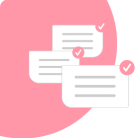How To Get A Remote Job: A Complete Guide

Last Updated: In today’s dynamic job market, the phrase how to get a remote job has become a significant quest for many professionals seeking flexibility and freedom. As per recent remote work statistics, a remarkable 87% of individuals contemplating a career shift expressed a strong inclination toward hybrid or fully remote roles, showcasing a significant […]
Is Customer Services A Good Career Path In 2024?

Is Customer Services a good career path in 2024? As we navigate the ever-changing terrain of employment, the question surrounding the viability of a career in customer Services becomes increasingly significant. With an expected growth rate of 5% and a projection of 136,000 new customer service jobs to be added from 2016 to 2026, let’s […]
How To Ask To Work Remotely (With Tips)

Wondering how to ask to work from home ? Are you tired of commuting to work every day and wish to work from the comfort of your home? If yes, then you are not alone. With the rise of remote work, more and more employees are seeking ways to work from home. While 37% of […]
How To Respond To What Interests You About This Position?

Are you wondering how to answer what interests you about this position in an interview? If your answer is yes, you have landed in the place where you can definitely find the answer. Here, we will provide you with tips as well as example answers to help you answer the interview question, “why are you […]
Proven Tips For Stay At Home Mom Going Back To Work

If you are a stay at home mom going back to work, then it must be exciting and overwhelming. Whether you took time off to pursue further education, take care of your children, or deal with personal circumstances, the prospect of re-entering the workforce can be daunting. However, with the right mindset, preparation, and strategies, […]
10 Smart Questions To Ask Recruiter Before Interview

Want to know what question to ask before interview to help you in the preparation process? Then, this article is for you. Usually, you will be preparing answers for your job interview right before attending one. That’s only natural as an interview is the best chance for you to prove that you are the perfect […]
Guide For One Way Interviews With Everything You Need to Know

It is common for applicants to undergo a pre-screening process before getting scheduled for an interview. While using phones to do preliminary interviews is common, it needs companies to have a team of people. Thus, with the increase in technology, organizations are going for automated pre-screening methods. One way interview or one-way video interview is […]
10 Intangible Skills That Sets You Apart From Other Candidates

What sets you apart from others candidates? is a question that an interviewer asks to learn about the intangible skills that make you stand out. So, you need to answer the question carefully as it can be a deciding factor on whether to hire you or not. From the assessment of Wonderlic, it is revealed […]
Find Out Why Employers Give No Response Right After The Interview

You went through the interview process for a job you really want. Your answers were perfect and your test went well. But even 1 week after interview no response is sent. It could get really frustrating to wait for the interview result as you don’t know whether to proceed with other job applications or not. […]
10 Best Places to Work Remotely

Working remotely gives you great flexibility and you do not have to deal with commuting from home to office and office to home. However, staying at home all the time can badly affect your mental and physical health. Hence, it is always best to go out occasionally. Getting sunlight, doing physical activities, and having human […]




